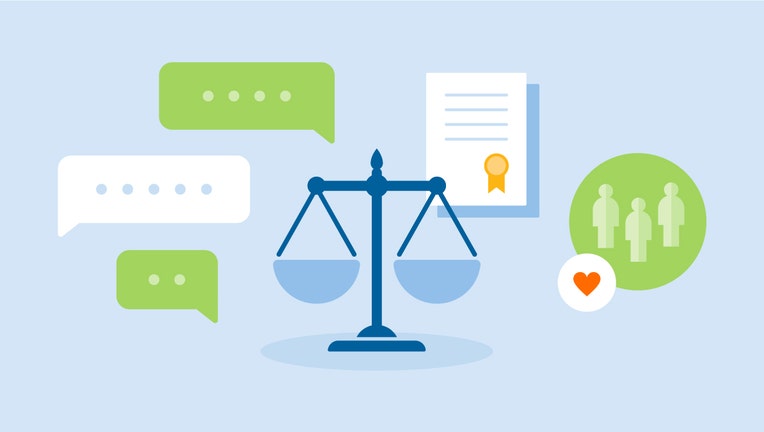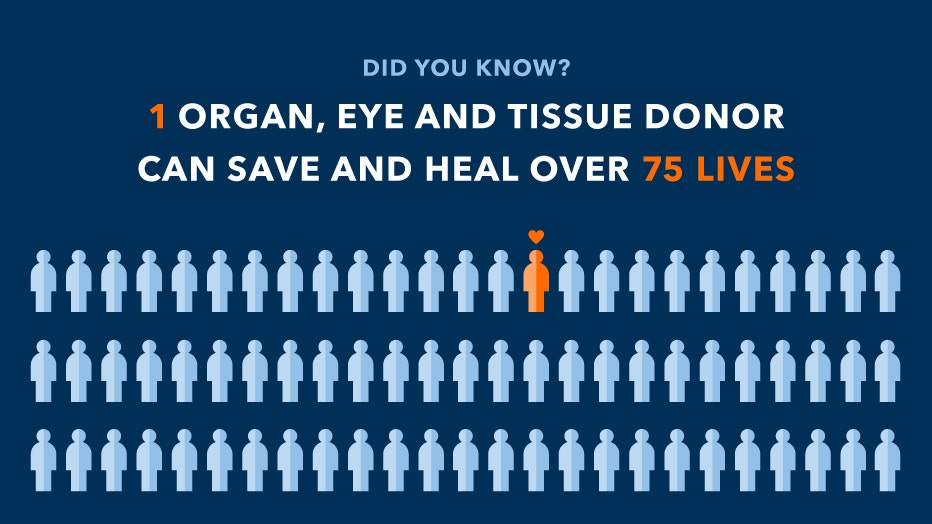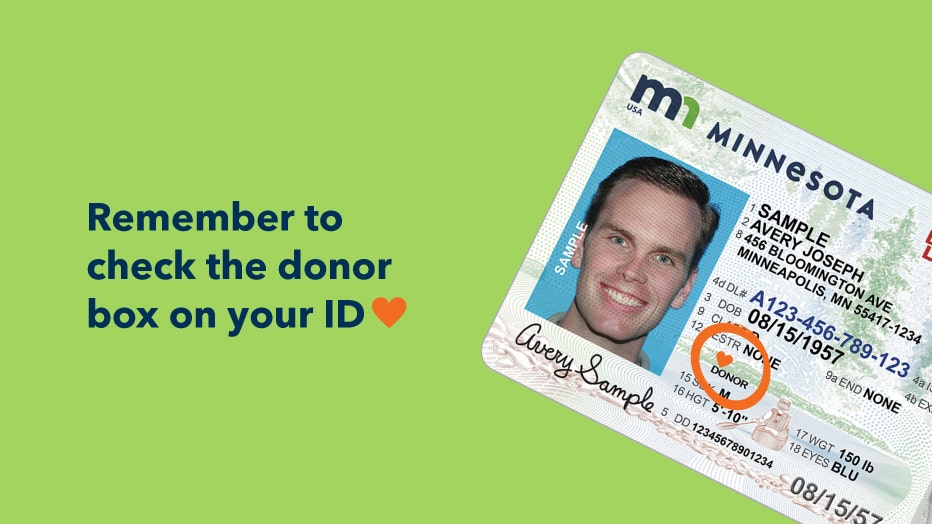The legal (and practical) reasons to register as an organ donor
This content was provided by our sponsor, LifeSource. The FOX editorial team was not involved in the creation of this content.


Organ donation is a generous, selfless gift. Choosing to register as an organ donor is a legal decision, like a will or advanced directive.
Did you know you can formally document the decision to be an organ donor during your lifetime through your driver’s license, the online registry, a living will or advanced directive, the iPhone health app or other official registry?
Like a living will, the decision to register as a donor is legally binding for individuals over 18 and leaves end-of-life instructions for your loved ones to follow. Many families find these instructions to be a gift: they know exactly what their loved one wanted. That can bring comfort to a family after the death of a loved one.
LifeSource’s role is to honor the decision an individual has made to become an organ donor if that person meets donation criteria at the end of their life.
Here are 8 common questions we receive about the decision:
What does "Donor Registration" mean?
Donor Registration, also referred to as Donor Designation or First Person Authorization, means an individual has made the personal decision to donate organs, eyes and tissues after death and has documented that decision by joining the donor registry.

What if my family doesn’t agree with my decision; can my family change my decision?
No. When you register as an organ, eye and tissue donor, you are making a legal decision that will be honored after your death if you are over the age of 18. Donation falls under the Uniform Anatomical Gift Act and your decision is seen as a gift that cannot be revoked by others. Therefore, it is extremely important to talk with your family so they’re aware of your choice and prepared to honor your decision. Registering as a donor, and sharing that decision with your family, removes the burden for your family to make the decision for you after you die.
What if I don’t document my decision about becoming an organ donor?
If you don’t document your donation decision prior to your death, and you meet initial criteria for donation, your loved ones will have the opportunity to make that decision on your behalf. This is another reason why it is vitally important to talk to your family about your donation decision – whether it’s yes or no.
Organ donation requires being on a ventilator. What if my loved one said they do not want to be on a ventilator?
In order to donate organs, an individual must be at a hospital and already on a ventilator/life support. This is important to ensure the organs remain viable for transplant. The donation process typically takes between one and two days, so your loved one would remain on that ventilator for only a short time. If your loved one expressed they did not want to remain on a ventilator long-term, it’s only necessary for a short time to fulfill their donation wishes.
What is the legal age to donate organs?
Anyone can register as an organ donor. If you’re over 18, the decision is legally binding, which means it cannot be changed by your family or anyone else. This is a legal decision that will be honored after your death.
How can I register to be a donor?
There are 4 easy ways you can register – you choose the way that’s best for you:
- Register online
- Check the box on your driver’s license – check the box on your application when renewing or applying for a license at the DMV.
- Hunting and fishing license – Minnesotans can register as a donor when applying for a hunting and fishing license online.
- Register in the Health app on your Apple device
How can I tell if someone is a registered donor?
When a person documents their donation decision through an official registry, that registry is referenced by a donation organization like LifeSource if that person meets initial donation criteria. LifeSource shares that documentation with the person’s family if donation is possible. If the individual documented the decision on their driver’s license, the word "DONOR" – or other indicator, depending on the state – will be listed. It’s important to have a conversation with your loved ones about these donation decisions now, before it’s urgent, so you can support each other’s decisions.
Does donor registration affect patient care?
An individual’s donor registration is separate from and has no influence on patient care. Donation decisions are referenced by Organ Procurement Organizations like LifeSource, not by hospitals, for the sole purpose of verifying and honoring donation decisions.

Looking for more information? Check out our frequently asked questions about organ, eye and tissue donation.
This content was provided by our sponsor, LifeSource. The FOX editorial team was not involved in the creation of this content.

